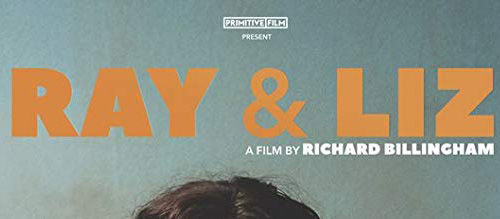Ray & Liz (2018) Review
This article was written exclusively for The Film Magazine by Lucas Hill-Paul.
Ray & Liz (2018)
Director: Richard Billingham
Screenwriter: Richard Billingham
Starring: Ella Smith, Justin Sallinger, Joshua Millard-Lloyd, Tony Way
A bedraggled, stubbled middle-aged man awakens in a hazy stupor and immediately lights a cigarette. His surroundings are singed with the deep, smoky cyan of the late afternoon. For extended minutes he simply sits and listens to the buzzing flies, whilst arthritically pouring a mixture with the appearance of Cola but the stench of spirits into a very used glass. Richard Billingham’s feature debut Ray & Liz opens peculiarly with stagnant redundancy, a bleak vision of a tower block present day cross-fading into an equally miserable past.
Like David Lynch’s Eraserhead, Billingham takes cues from Samuel Beckett’s dystopic streams of consciousness, in which shadows of forgotten denizens find their only solace in berating, abusing and bargaining with each other. Unfortunately, the former photographer is here bringing to life a half-remembered past, rather than speculating on a potential future. Taking inspiration from a series of cramped, musty photographs from his youth, there’s a palpable sense of “thank God that’s over” in place of a crucially needed self-awareness that this is a continuous process.
The film begins proper with a horrid sequence of emotional manipulation and abuse wrapped in a repellent ambiguity as to whether we’re supposed to find this funny. Billingham’s approach, in which a clearly mentally ill alcoholic clumsily falls on his stomach, indulges in tautological ticks and vomits all over himself, is cruelly unsympathetic towards someone we’re invited to presume actually existed. Of course, this being the most interesting and ostensibly layered character, he quickly disappears after receiving a series of sharp blows to the head.
We then dissolve again between a chronicle of three separate time frames inspired by Billingham’s photographic memoir. Cross-fading frequently between tower blocks, cloudy skies and fireworks, the aesthetically pleasing technique casts a pleasant, distractive sheen over the film’s grisly subject matter. When a young boy is forced to sleep rough due to forgetfulness and neglect, reversed footage of 5th of November fireworks hangs ethereally between the reels for a picturesque flourish. While the remarkably true, lived-in experiences feel stark and honest, Billingham’s photographic instincts are actually to the film’s detriment. Far more attention is drawn towards the insecurity of the camera, which twitchily pulls, pans and focuses more frequently than the character of Jason, presumably Billingham’s surrogate.
If I can find any solace in the folds of disparity found in Ray & Liz, it’s with the gorgeous camerawork beautifully projected during my screening at the BFI Southbank. Daniel Landin, DP for Jonathan Glazer’s superb Under the Skin, offers intimate and tangible photography, but the shallowness of its movement refuses its subjects access to anything broader or more complicated than a cause of repulsion or ridicule. Sharply executed sequences in which Jason reaches deep into a jar of red cabbage, or the family smoke half-finished cigarettes collected from gutters, are posited with the parodic edge of ‘The Royle Family’, but Ray & Liz is dishearteningly absent of any of the Loachian anger or intelligence that made I, Daniel Blake such a searing indictment of British poverty, and the systems in place that sustain it. White supremacy is also discussed breezily, with trivial, harmless racist references peppered in as flavour, apparently further testimonial for why these people are detestable as opposed to a damaging side effect of the impoverished class.
Instead, the portrait of the poor is zoologically voyeuristic. Liz is played as an overweight, violent hypocrite, Ray an apathetic layabout. When Jason, egged on by his brother Will, hovers a generous spoon of chilli powder over his sleeping father’s open mouth, we get the funniest scene in the film and as good a burst of physical acting from Sallinger as I’ve seen all year, but this is the closest the family ever get to a functional relationship. The scene is then punctuated by Ray retrieving an important letter, covered in dog piss, and stuffing it ignorantly under a stash of similar envelopes.
Ray & Liz is surely a superbly photographed document, a monologue of memory that never pulls a punch. However, its failings lie in its mean-spirited smugness that presupposes its audience as distant to the more unpleasant ins-and-outs of council life, brimming with skits that have the transparent intention of easy shock value. Billingham’s debut stands as an uneasy promise of a future British classic, as there’s no question that the brutally honest artist is immensely talented, but talent often goes unrealised when the characters aren’t permitted to speak for themselves.
11/24
You can support Lucas Hill-Paul at the following links:
Personal Twitter – @lucashpaul
You can find more of his writing at Film Daily News – @FilmDailyNews


